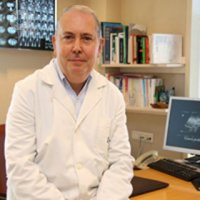Advances in the diagnosis and treatment of digestive diseases
Written by:Digestive diseases are disorders that occur in the digestive system. The gastroenterologist can resort to a series of tests that will allow him to diagnose and treat these health problems.
The most common digestive diseases in clinical gastrointestinal practice are gastroesophageal reflux disease (usually due to hiatus hernia), dyspepsia and other diseases related to Helicobacter pylori, celiac disease, irritable bowel syndrome (IBS), inflammatory bowel disease (IBD: Ulcerative Colitis and Crohn's disease), upper and lower digestive hemorrhage, hypertransaminemia (HC), cholelithiasis, and acute and chronic pancreatitis.

Among all, dyspepsia and IBS are very prevalent and constitute about 3% of all patients treated in primary and 25% in specialized care. The main symptom they present is abdominal pain and defecation disorder (constipation and diarrhea).
Advances in detection methods
The main methods of detection of a gastroenterologist are ultrasound and endoscopy. We also have a series of functional tests such as breath test with H2 expired (for example to diagnose lactose intolerance and fructose), TAUC13 to diagnose Helicobacter pylori, Phlemometry and esophageal and anorectal manometry.
Pancreatic tests and SeHCAT (tauroselcholic acid-75Se) are also being implemented for biliary malabsorption, a possible cause of chronic diarrhea.
The most important advances in diagnosis come from ultrasound and endoscopy, especially the Endoscopic Ultrasound and endoscopic capsule, among others.. Interventional endoscopic techniques, for example ERCP and POSE, also represent an advance.
In turn, new methods are emerging, such as Lactest for lactose intolerance, Simtomax for celiac disease, and Sehcat for biliary malabsorption.
The importance of early detection
It is essential in colorectal cancer (fecal occult blood, colonoscopy and polypectomy if necessary) and hepatocellular carcinoma (ultrasound). In the case of Celiac disease: Serology, Simtomax, and endoscopic duodenal biopsy and in IBD by colonoscopy and ileoscopy with biopsies. In chronic viral hepatitis (HCV) is essential to implement oral treatments that cure the disease and prevent progression to cirrhosis and hepatocarcinoma. Early detection is especially important, in other cases, such as pancreatic cancer and neuroendocrine tumors .



